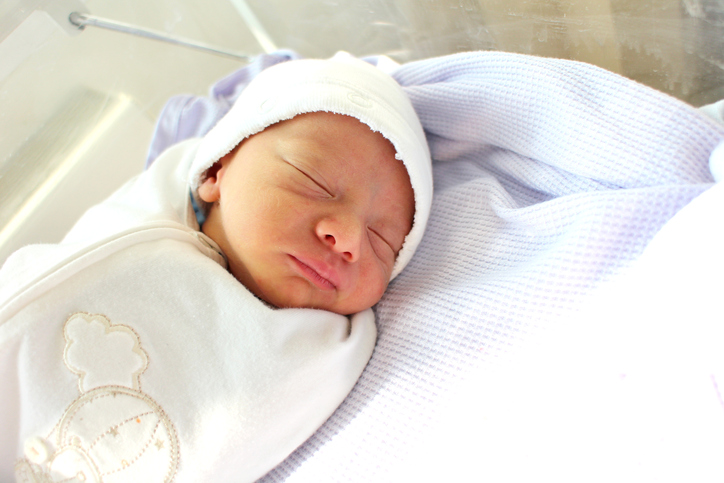Hearing Loss in Premature Babies
 Hearing loss is one of the most common birth defects for premature babies. According to the American Speech-Language Hearing Association (ASHA), one to three per 1,000 children are born with hearing loss. The incidence rate is even higher for babies admitted to the neonatal intensive care unit (NICU) – 32 per 1,000 babies – many of whom are born prematurely.
Hearing loss is one of the most common birth defects for premature babies. According to the American Speech-Language Hearing Association (ASHA), one to three per 1,000 children are born with hearing loss. The incidence rate is even higher for babies admitted to the neonatal intensive care unit (NICU) – 32 per 1,000 babies – many of whom are born prematurely.
Babies born before 37 weeks are considered premature. They may have more health issues and tend to stay in the hospital longer after birth than babies born within the typical 38 to 42 week time frame. While most babies are screened for hearing loss following birth, premature babies may need more time prior to being evaluated, said Dr. Lindsay Bondurant, pediatric audiologist and director of the Pennsylvania Ear Institute.
“Typically, children born with complications due to prematurity will spend some amount of time in the NICU,” she said. “We want to screen them before they are discharged from the hospital. In a typical birth, we screen the infant within 48 hours. For children in the NICU, we need to wait until they are medically stable.”
If the child does not pass the hearing screening, the parents will be referred for a full diagnostic evaluation, which can further evaluate the degree of hearing loss, ranging from mild to complete. Early intervention options to ensure the child can communicate properly can happen immediately.
“Pediatric audiologists will review with the parents the results of the evaluation and the options for interventions, which may include hearing aids or alternative communication strategies like sign language – there’s a number of different options,” Dr. Bondurant said. “Our first and foremost concern is making sure that the family can communicate with their baby and the baby can benefit from the communication as they’re growing.”
Children with untreated hearing loss may have delayed or limited speech and language development as they age. They may have difficulty understanding others, learning new words and saying them properly. Children may also have difficulty socializing with other children because of their communication deficits. The sooner the hearing loss is diagnosed and treated, the more likely the child will have better speech and language outcomes, according to ASHA.
In some cases, hearing loss may develop at a later age for premature babies. Depending on the factors associated with the prematurity, some children may be at risk for onset, delayed hearing loss.
“We would want an audiologist to review certain cases and make a recommendation whether or not the child should come back for additional testing,” Dr. Bondurant said. “I generally recommend parents come back for a full audiological evaluation when the child is six to eight months old so we can make sure nothing slips through the cracks.”
The Pennsylvania Ear Institute offers specialized services for children of all ages. Our pediatric audiologists can ensure your child is receiving the proper care for their hearing issues.